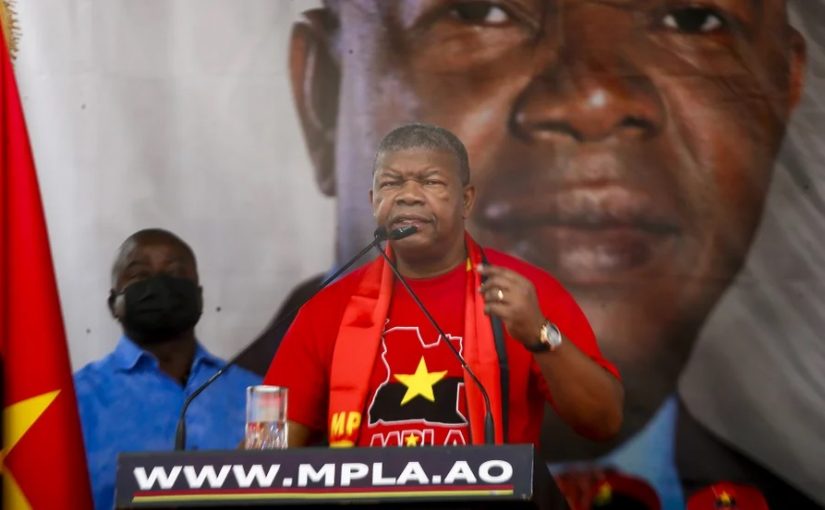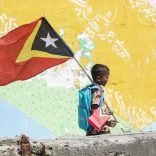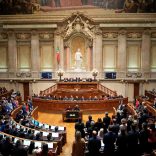East Timor to deport former Philippine lawmaker wanted in 2023 killings
Angola: Mediation will be needed to avoid post-election violence – report

FILE - For illustration purposes only. [File photo: Lusa]
A report from the South African Institute for Security Studies(ISS), said that “mediation will be necessary to avoid a likely violent post-electoral conflict” following the 24 August elections in Angola.
The document, which Lusa saw on Thursday and will be presented tonight in a video conference organised by Angolan digital channel Camunda News, considered two voting scenarios.
“The first, and most likely, is that the MPLA will win the elections, manipulating the electoral and justice institutions and benefiting from bias. This could cause a popular revolt that could spill over into post-election violence. The second scenario, less likely, is a UNITA victory, which would lead to some conservative groups within the MPLA refusing to transfer power,” the document written by Borges Nhamirre, a jurist and researcher at Mozambique’s Centre for Public Integrity and ISS consultant, reported.
“Mediation will be necessary to avoid a likely violent post-electoral conflict,” the author of the document stressed.
The “Free and fair elections? Angola’s uneven playing field” report said that the government of the Popular Movement for the Liberation of Angola (MPLA), in power since independence in 1975, “faces serious opposition.”
“However, the highly uneven political landscape still favours the ruling party. Free, fair and credible votes will depend on applying the principles and guidelines of the Southern African Development Community (SADC).
According to Borges Nhamirre, the elections will take place “in a highly unequal scenario which favours the ruling party [MPLA]. The state press is controlled by the government and the ruling party and often publishes favourable information. The Constitutional Court [which has the constitutional competence of an electoral court] has proved that it is partisan, adopting decisions that harm the opposition parties and their candidates”.
The ISS consultant denounced, on the other hand, that the recommendations made in the previous elections, in 2017, by the SADC Electoral Observation Mission to Angola and the Angola Electoral Observatory “have not yet been put into practice.”
Another recommendation that has not been followed by the Angolan authorities has to do with drawing up the voters’ list, which is the responsibility of the ministry for territorial administration, which, as it is a government department, “goes against the SADC recommendations,” Nhamirre noted.
In terms of election observation, the report noted that the National Electoral Commission (CEN) had set a maximum of 2,000 national observers to monitor over 26,480 polling stations, including overseas.
According to Nhamirre, the limit of three accredited non-governmental organisation (NGO) observers for each of Angola’s 18 provinces “will prevent” these organisations from “conducting a proper parallel vote tabulation.
The recent legal changes that were approved by the parliament, where the MPLA has a comfortable majority corresponding to the 61.07% obtained in 2017, and which stipulated that the counting of votes will this time be done in Luanda, “are highly problematic and undermine accountability and transparency.”
In his recommendations, Nhamirre distributed them to the African Union (AU) and the international community, SADC and the Angolan government.
He recommended that the AU and the international community urge the Angolan government “to respect freedom of expression and human rights and avoid cutting off access to the Internet during voting and protests.
SADC should “urge the Angolan government to apply the recommendations of the Election Observation Mission (…) to allow for independent validation of the voter list.
Nhamirre also recommended that SADC urge the MPLA and UNITA, and other parties and coalitions “to avoid hate speech that may incite violence.
Nhamirre asked the Angolan government to “stop using the state media” and to ensure that the election management authorities “respect the law and the Constitution and practice transparency to ensure the trust of candidates and citizens.
The final recommendation to the Angolan government is to “allow the population to comment freely on the processing and transmission of the election results” and to sensitise the NEC to “eliminate the barrier” of 2,000 Angolan observers and authorise the monitoring and observation of the elections.












Leave a Reply
Be the First to Comment!
You must be logged in to post a comment.
You must be logged in to post a comment.